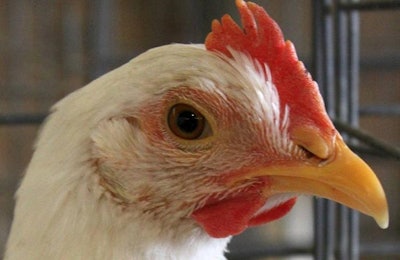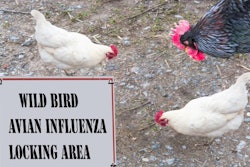
Based on official reports, new outbreaks of highly pathogenic avian influenza (HPAI) have been confirmed in poultry and ostriches in India, Nigeria, Russia, and South Africa, while a low-pathogenic virus has been detected again in the Dominican Republic.
Previous local media reports of new outbreaks of HPAI linked to the H5N1 virus subtype in India have now been confirmed. Two backyard flocks in Bihar state totaling more than 4,000 poultry were affected by these outbreaks in mid-December and early January, according to the report from the Ministry of Agriculture and Farmers’ Welfare to the World Organisation for Animal Health (OIE).
One of the flocks was located in Mungar — the same district as a previous linked outbreak — and the other was in Banka. That brings the total outbreaks in the state since November last year to three.
The same animal health agency in India has informed OIE about the detection of the H5N1 HPAI virus in wild birds at four locations during the first half of January. A total of 38 wild crows were found dead at two locations in Patna, and at Rohtus in Bihar state, and a heron tested positive for virus in the Khurda district of Orissa,
Taiwan has been fighting a long battle to control HPAI in its poultry sector. The situation has not been helped by the discovery of around 100 dead chickens dumped near Xinfeng town in the county of Hsinchu. According to Focus Taiwan, the birds have tested positive for an H5 HPAI virus. The authorities are taking them matter seriously, and are investigating the source of the infected birds with the view to imposing a heavy fine on the perpetrator of the dumped animals.
Nearby farms have been found to be free of the infection but have been “disinfected and cleared of any virus activity”, according to the report.
Since the start of the year, HPAI virus has been detected at two Taiwanese farms, and more than 11,000 birds have been culled.
Following two outbreaks of HPAI linked to the H5N1 virus variant within the last month, the Ministry of Agriculture and Rural Development has declared the disease situation to be “resolved,” according to its latest official report to the OIE.
Russia: Second outbreak at Rostov turkey company
Around two weeks after a first outbreak of HPAI linked to the H5N8 variant, the virus has been detected in another Ursdon flock in Rostov oblast. Around 50 of a flock of 16,177 mature turkey breeders died as a result of the disease, according to the official report to the OIE from the agriculture ministry in Moscow.
Africa: Further outbreaks in South Africa’s ostrich industry, Nigerian poultry
The H5N8 HPAI virus has been causing sporadic outbreaks of HPAI in commercial ostriches in West Cape Province since June of 2017.
There were a further five outbreaks between August and November last year, according to the report of the country’s veterinary service to the OIE. There were a total of 159 cases of the disease among a total of more than 6,500 ostriches at farm in four different regions, including the city of Cape Town.
Following a lull, the same HPAI virus subtype has been detected at two chicken farms in the central Nigerian state of Bauchi. The first outbreak in the second week of January was in a flock of 2,000 young pullets following the introduction of new birds, according to the official report from the Federal Ministry of Agriculture and Rural Development. This event was followed the next week in a “backyard” flock of almost 850 mature laying hens.
Prior to these outbreaks, the most recent detection of the H5N8 virus in the area was in neighboring Nasawara state in February last year.
Low-pathogenic virus detected in Dominican Republic
An H5N2 variant of the low-pathogenic avian influenza (LPAI) virus was detected in the Dominican Republic in November of 2018, according to the latest agriculture ministry report to the OIE. Of a flock of mixed species in the northern state of Puerto Plata, 745 of the birds died, and the rest were destroyed or slaughtered. The last time this virus was reported in the country was in June last year.

















